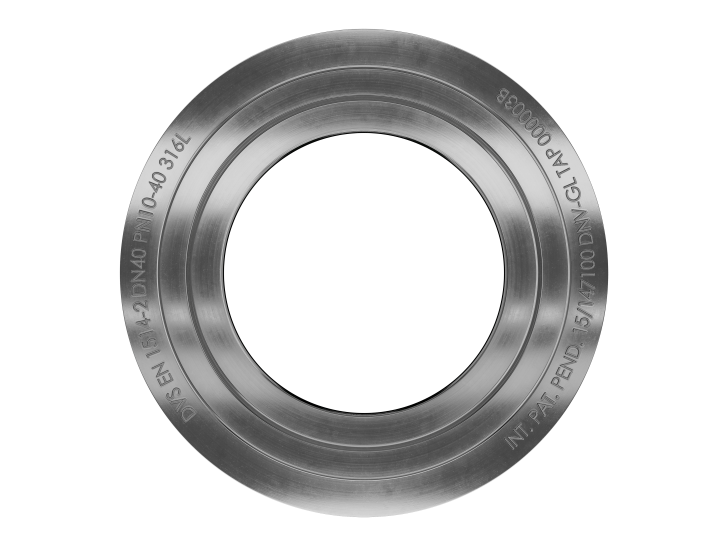

Norway’s Pipeotech says that following extensive leakage testing, carried out under cryogenic conditions in a laboratory programme, it has extended coverage all the way down to applications running at a temperature of -196°C (-320.8°F).
Pipeotech launched its metal-to-metal DeltaV-Seal in 2015.
Backed by unique DNV GL type certification, it immediately set a new gas-tight standard for industrial gaskets, offering the first sealing technology that was proven to stay exceptionally tight over time with zero maintenance or retorquing required, says the company.
After proving it efficacy in sectors ranging from hydrocarbons to chemicals processing, maritime, pharmaceuticals and food and beverage production, in 2020 the company launched the sealing industry’s first engineered long-term gas-tight limited warranty (See the technology focus item entitled ‘Leak-proof gasket supported by ten-year gas-tight performance guarantee ensures long-term pipeline integrity’, Sealing Technology, March 2021, page 7).
Leakage testing Pipeotech conducted leakage testing of a bolted flange joint (BFJ) under cryogenic conditions in a laboratory testing programme engineered and carried out together with Wroclaw University of Science and Technology in Poland.
The BFJ contained a DN40/PN40 material 316L DeltaV-Seal with a sealing length of 0.2 m and containing helium at a pressure of 10–100 bar.
Andrew Patrick, CEO, Pipeotech, commented: ‘To stand a chance of eliminating fugitive emissions, modern cryogenic processes require a new generation of sealing product that can maintain absolute integrity all the way down to -196°C (-320.8°F). The data we have seen are conclusive and should promote DeltaV-Seal right to the top of the pile – we are delighted with the results.’
Seal testing is typically carried out at ambient temperatures. Cryogenic conditions can be defined as anything below -150°C (-238°F).
Performance The results show that the DeltaV-Seal maintains a tightness level higher than 10-8 mg/s at temperatures down to -196°C, at all tested pressures. The seal was also shown to expand and contract at the same rate as the temperature fluctuations, confirming, in action, that extreme temperature fluctuations do not affect the tightness of the seal.
‘This gave us the confidence to extend our value proposition of engineered long-term gas-tight performance, with no maintenance, all the way down to -196°C, which is fantastic news for any industry featuring very low temperature processes,’ continued Patrick.
Key market Liquefaction, liquefied natural gas (LNG) and liquefied petroleum gas (LPG) shipping and terminals, floating LNG (FLNG) facilities and regasification are consequently one of Pipeotech’s main markets, but the broad spectrum of existing and emerging industries that also use cryogenic processes can also greatly benefit from using the DeltaV Seal, says the firm.
‘These industries include production and handling of emerging new green fuels – particularly hydrogen, where there is a lot of activity right now – as well as ammonia and biofuels,’ added Patrick.
‘To stand a chance of eliminating fugitive emissions, modern cryogenic processes require a new generation of sealing product that can maintain absolute integrity all the way down to -196°C.’
Comparison The status quo in cryogenic processes has been to use old technology that has been extremely prone to leakage, requiring constant maintenance and replacement of gaskets.
The Wroclaw laboratory carried out exactly the same tests under the same cryogenic conditions on 20 to 30 competing high-performance gaskets based on graphite or polytetrafluoroethylene sealing components.
‘The results showed that the DeltaV-Seal is more than 10 000 times tighter at 8 bar, which was the highest applied test pressure for these other gaskets. This clearly puts it in a league of its own,’ said Patrick.
‘The fact that the leakage rate did not significantly change up to a pressure of 100 bar also added to our confidence in extending the ten-year warranty.’
For further information, visit: www.pipeotech.com (This technology focus is based on press material issued by Pipeotech AS.)




